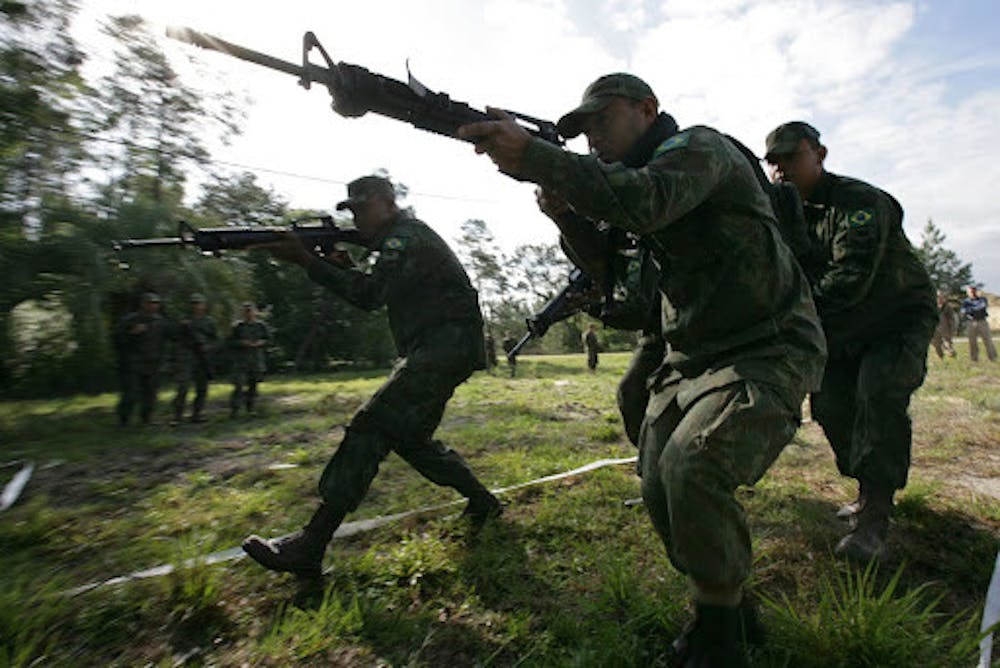By Sarah Sankel
Correspondent
At least 121 drug gang members were killed by the police in Rio de Janeiro, Brazil, on Oct. 28, according to Reuters. The brutality has sparked protests in Brazil as well as international condemnation of the Brazilian government’s actions.
The criminal group targeted by the Brazilian government and police force is known as the Red Command. Brazil’s oldest criminal group, the Red Command, began in a prison in the 1970s and has become a “sizable national and transnational threat,” according to InSight Crime. The group has a loose and interconnected power structure, is primarily involved in trafficking cocaine and is based in and around Rio de Janeiro.
The police raid, it appears, was planned over two months in advance. The goal was to drive gang members into a forested hillside where police forces were waiting to attack, according to Reuters.
In the early hours of Oct. 28, police forces streamed into the slums of Rio de Janeiro, searching for some of the leaders of the Red Command. The police came equipped with armored trucks and helicopters and left dozens of dead young men behind, according to The Economist.
Later that day, locals searched for bodies, and the death count was brought up to at least 121 bodies, making it the deadliest operation in Brazilian history. The Economist reported that “according to locals, some of the latest victims were found with their hands tied. Others appeared to have been shot or stabbed from behind.”
The operation significantly affected the surrounding area, as families mourned those dead, recovered bodies and closed businesses and schools, according to The Economist.
The next day, protests erupted in Brazil in front of state headquarters. Many waved Brazilian flags stained with red paint. Families of victims and other residents laid out the bodies of those killed on the street as a way of showing the magnitude of the raid’s aggression, according to AP News.
Resident Elisangela Silva Santos’ opinions on the raid are reflective of what many in Brazil seem to believe right now. “They can take them to jail,” she said, according to AP News, “why kill them like this? Lots of them were alive and calling for help. Yes they’re traffickers, but they’re human.”
The Brazilian government, on the other hand, has viewed the raid positively. The government wrote that “security forces remain steadfast in the fight against crime,” and the city of Castro wrote about the Red Command, “this is the magnitude of the challenge we face. It is no longer common crime, it is narco-terrorism,” according to CNN World.
International organizations were quick to criticize the Brazilian government. According to CNN World, the United Nations Human Rights Office was “horrified” by the raid, saying, “This deadly operation furthers the trend of extreme lethal consequences of police operations in Brazil’s marginalized communities. We remind authorities of their obligations under international human rights law, and urge prompt and effective investigations.”
Other international organizations have spoken similarly, condemning the actions of the Brazilian government and police force.







